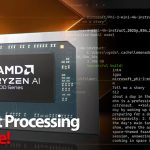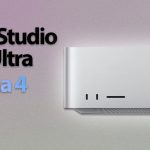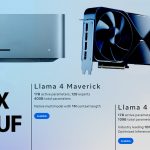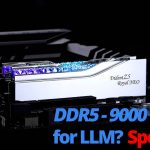Apple Killer? New AMD LLM Capable PC Costs Half the Price of MacBook Pro!
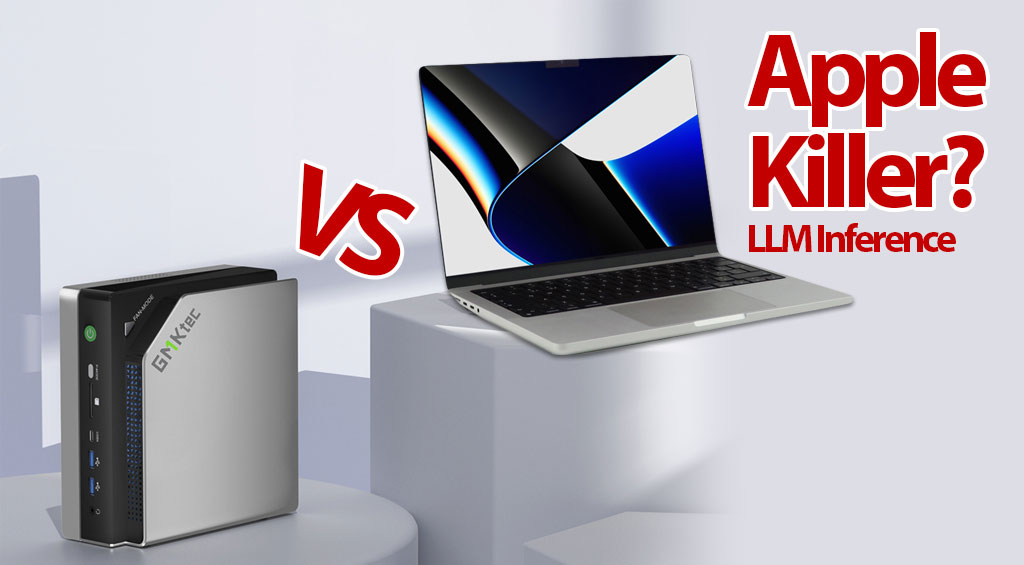
The landscape of local AI inference is evolving rapidly, with compact mini-PCs attempting to bridge the gap between affordability and high-performance computing. GMKtec has officially priced its EVO-X2 SFF/Mini-PC at ~$2,000, positioning it as a potential option for AI enthusiasts looking to run large language models (LLMs) at home. However, despite the promising specs, its real-world usability for massive models like Llama 3 70B remains uncertain.
A Reality Check on EVO-X2’s AI Performance
At the heart of the EVO-X2 is AMD’s Ryzen AI MAX+ 395 processor, paired with 128GB of LPDDR5X memory running at an estimated 256GB/s. While this is significantly faster than standard DDR5 configurations, it falls well short of Apple’s MacBook Pro M3/M4 Max, which boasts 400GB/s of unified memory bandwidth, making them a great mobile LLM solution. More critically, 256GB/s is not particularly groundbreaking for running 70B+ models, which typically require extreme memory bandwidth to achieve high tokens-per-second inference rates.
For users interested in running 70B+ models locally, this system may struggle to provide acceptable performance, especially when compared to multi-GPU setups with high-bandwidth VRAM. However, it could still serve as a viable platform for smaller models, such as 32B, particularly when leveraging large context windows for specialized applications. Until real-world testing is available, the exact performance remains speculative.
EVO-X2 vs. Apple MacBook Pro
Apple’s latest MacBook Pro models have set the standard for unified memory systems, particularly for AI workloads. The MacBook Pro M3 Max with 128GB of unified memory features a 400GB/s bandwidth, priced at $3,800, while the M4 Max starts at $4,600 for the base 128GB configuration. The GMK EVO-X2, while significantly cheaper, does not offer memory bandwidth competitive with Apple’s architecture.
That being said, the EVO-X2 still holds appeal for users who prefer an x86 ecosystem, Linux compatibility, and more customization flexibility compared to Apple’s macOS-based solutions.
How It Stacks Up Against NVIDIA’s DGX Spark
NVIDIA’s DGX Spark is another alternative in the AI workstation space, featuring 273GB/s memory bandwidth and an estimated price of around $3,000. While this system may offer better AI performance due to NVIDIA’s optimized AI accelerators, it is also a larger and more power-hungry option compared to the EVO-X2. Users focused purely on AI workloads may still find NVIDIA’s solution more attractive.
Framework Strix Halo Alternative
Another competitor is the Framework Desktop, which utilizes the same Strix Halo architecture and is priced similarly at $1,999. However, the Framework model is slightly larger solution, making the EVO-X2 more appealing to those looking for a compact, space-efficient AI workstation.
The Case for Local LLM Inference
The increasing demand for local AI inference solutions makes the EVO-X2 an intriguing option, but its hardware limitations must be considered. The Ryzen AI MAX+ 395 processor, while powerful for general computing, lacks the memory bandwidth needed to efficiently run larger AI models. That said, users interested in running smaller LLMs like 7B-32B models with extended context may still find value in the EVO-X2.
Final Thoughts
At $2,000, the GMK EVO-X2 is not the most budget-friendly option, nor is it a powerhouse for large-scale AI inference. However, it fills a niche for those looking for a plug-and-play AI development system that doesn’t rely on expensive, power-hungry GPUs.
For serious AI users working with 70B+ models, multi-GPU setups with high-bandwidth memory will remain the superior choice. However, if your needs are centered around smaller models or experimentation with large-context workflows, the EVO-X2 may still have a place in your local AI setup. Ultimately, its real value will depend on actual benchmarks, which we’ll have to wait and see.

